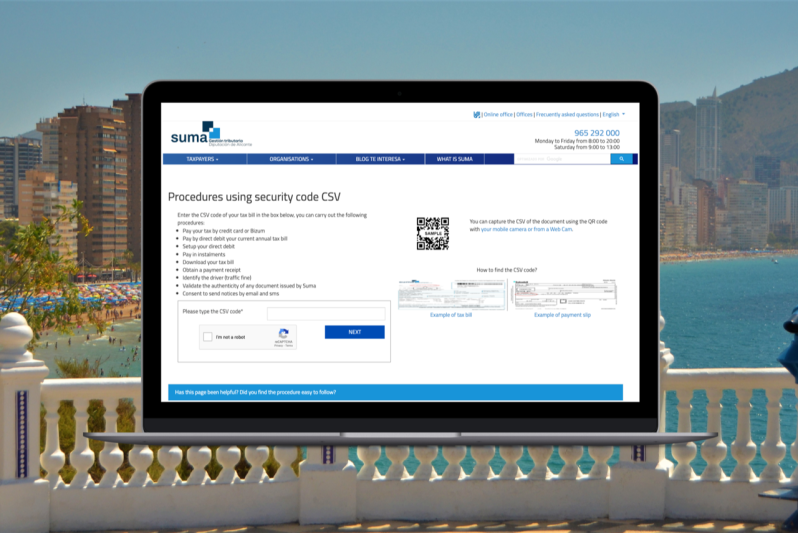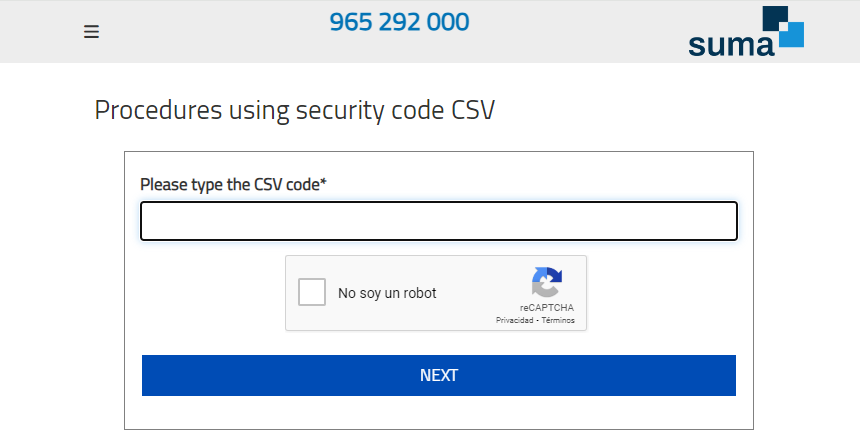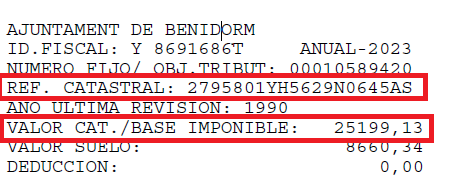How to Download Your IBI Receipt in Alicante
March 7, 2024

If you're a non-resident property owner in Alicante, ensuring compliance with Spanish tax obligations is essential. Even if your property is unoccupied, you're still required to fulfil various tax duties, including reporting imputed income based on the property's cadastral value. To access this crucial information, your IBI (local property tax) receipt is indispensable, as it provides the latest cadastral value updates necessary for tax filing and other purposes.
The calculation of the Imputed Income Tax is based, among other things, on the cadastral value of the property. The most reliable place to find the latest cadastral value of your property is on your IBI (local property tax) bill. This document is issued annually and will reflect any updates to the cadastral value, ensuring you have the most up-to-date information for tax and other purposes.
What is SUMA?
SUMA is an autonomous body created by the Provincial Council of Alicante, whose main functions are to manage and collect municipal taxes in the province of Alicante. Among these taxes is the IBI, which, as mentioned above, contains in its receipt a series of essential data to fill in the imputed income form.
In this post, we will explain how to download the IBI receipt to obtain this information through the SUMA website.
Here's a step-by-step guide to downloading your IBI receipt from the SUMA website:
1. Visit the SUMA website using the following link: https://www.suma.es/PortalWeb/localizadores/cuerpo_localizador.xhtml
2. Have your bank receipt for the IBI payment ready, as it typically includes a specific code (CSV) necessary for downloading the official IBI receipt from the regional tax office's website.

3. Enter the code (CSV) from your bank receipt into the designated field on the SUMA website:

4. Then proceed to input your tax identification number.

5. Proceed to download your IBI receipt by clicking the ‘Download’ button.

6. Once downloaded, you can access the necessary data from the receipt, such as the cadastral value and reference for completing the Imputed Income form.

By following these straightforward steps, you can effortlessly obtain your IBI receipt and ensure accurate completion of the imputed income form.
Filing Non-Resident Taxes in Spain
For those who are non-resident property owners in Spain, it's crucial to understand the various taxes that may apply to you. In addition to the IBI tax, you may be subject to other non-resident taxes, depending on how you utilise your property during the year. These taxes are typically filed using the Modelo 210 tax form, on an annual basis.
If you own a property for personal use, even if it sits empty all year round, you'll still need to fill out a Modelo 210 form for your Imputed Income tax by December 31st for the previous year. And if you're renting out your property, you'll also need to submit an annual Rental Income tax form for the previous year. Good news though: Previously, this had to be done every quarter, but recent changes have made it much simpler for non-resident property owners in Spain!
IberianTax offers a hassle-free solution for filing your Modelo 210 with the Spanish tax authorities, starting at just 34.95€! Our intuitive online tax software guides you through the process step by step, making it easy to prepare and submit your Imputed Income and Rental Income tax returns, even if you're unfamiliar with the process.
Simply complete the questionnaire with our user-friendly interface, and we'll review your submission before sending it off to the authorities on your behalf. With IberianTax, you can rest assured knowing that you comply with Spanish tax laws. Plus, our knowledgeable team of tax experts are available to assist you whenever you need it.
Don't let tax filing overwhelm you – start saving time and money today by using IberianTax to file your Modelo 210!